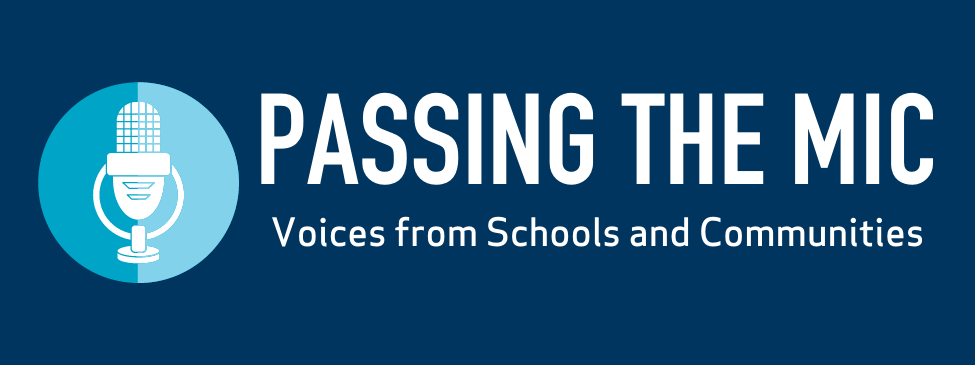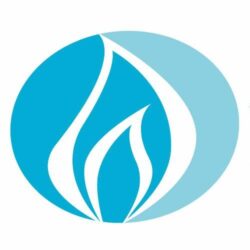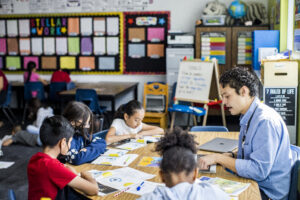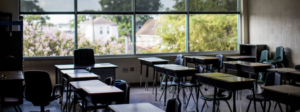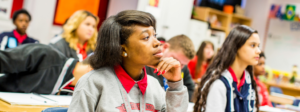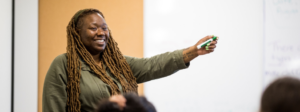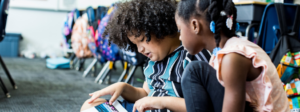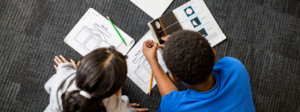Our new video series, Passing the Mic, features candid conversations with education leaders from across the country about what’s working, what’s not, and what we still don’t know about ensuring students get the educational opportunities they deserve during this uniquely challenging moment.
In Episode 2, TNTP’s Christina Brown interviews Harrison Peters, superintendent of Providence Public Schools, about partnering with his community to turn around the district during the COVID-19 pandemic and a national moment of reckoning with system racism. He also shares his plan to support students academically and emotionally as school resumes. You can watch the entire conversation above or here, and read excerpts below.
You can find all episodes of Passing the Mic here.
As you look ahead to the next school year, and as you’re planning for reopening in the fall, whatever that looks like, what’s been most important to you? How have you been thinking about balancing the very real academic gaps that students will be returning with and the importance of helping them cope with the trauma that they may have experienced and the difficulty of readjusting to school after so many months away?
Through this whole COVID crisis and shifting to the distance learning platform, we have disenfranchised a community of students that just don’t like it. They didn’t bond to it. It’s not fitting their learning styles. They miss their teachers. They miss that personal interaction. But we’ve also tapped into and liberated another community of student that love it. It’s their space. It’s their sweet spot.
Why go back? The old way wasn’t working for everyone so we’re not interested in going back to the old way. The opportunity now is, how do we continue to reinvent learning? What I want the community to understand is we fully acknowledge that we are still amidst trauma. This is a crisis. We’re losing students. We’re losing community members. We’re losing faculty and staff. We know that there has to be some very intentional healing when we come back.
Then the other piece is how do we ensure that families feel safe and teachers feel safe? Because quite frankly, our polling suggests that many families, nearly half of our families still aren’t quite comfortable coming back. Our primary concern is to make sure that we are being health conscious.
I want to talk about the crisis and the reckoning with systemic racism, and how you think that is impacting students as they experience their time away from school. How do you think about how you address that in the return to school for both students and staff, and for the community?
We want to celebrate our students. No question, student-led activism, student-led protests that were nonviolent, that were peaceful, that was focused on the issues that they believe are important, that we all believe are important, were absolutely necessary. We celebrate that. As a black male leader, the crisis that we’re in hits home. We’ve talked about this COVID-19 crisis, this virus. Racism is also a virus, and we need to respond just as diligent with all the vigor that we are with COVID-19 with finding an antidote for racism as well.
As a school district, we’re going to be very clear, first of all, that those behaviors and actions have no place in Providence public schools. We’re just going to call it out. Secondly, we’re going to have a very aggressive campaign in making sure that we mandate anti-racism, culturally responsive training for our teachers. We’re going to work really, really hard to diversify our workforce. Right now, our students of color make up about 90% of our student demographics. Yet, we have about 80-85% teachers that are white. We know the value in students being able to walk the hall of the schools that they spend almost seven to eight hours in per day and see role models and people that look like them. Not only in the school halls, but also in the curriculum and in the textbooks that we choose to put in front of our students.
I want to connect that to the lesson plan project that TNTP worked with Providence on for return to school. How will having lesson plans for the first five days of school support an academic vision for Providence, and how you see that rollout contributing to the work of teachers and the work that teachers and students do together?
No question, we believe this is going to be a game changer, and we believe this is something that teachers and parents and communities have been asking for. If you listen to the community conversation and focus that we’re having about reopening, everything speaks about how are we going to address this trauma? How are we going to address the crisis? Teachers have been asking for them, principals have been asking for them, and in our preliminary conversation there is sheer excitement. Our challenge is, how do we take it well beyond the first five days of school?
One of the requirements for this project is that it fits healthily with our American Reading Company and our Eureka math rollout. No question, teachers get frustrated when they feel as if there’s one more thing on their plate. And I think part of what we’ve been met with is the optimism that teachers said, “Hey, you know what? This is good stuff. This is what we’ve been asking for.” Now, they see the healthy integration into your daily lesson that it now becomes happenstance. It becomes habit as we begin to build out more lessons and more opportunities in our planning and our staff development. It just becomes part of the tapestry and the drinking water of the district, because teachers see how it can easily be incorporated in their daily lessons. We’re excited about that.
Providence is not the only district that is in turnaround status and is also experiencing COVID. What are the things you’d want to share with other districts that are trying to engage in transformation during this period in our history?
You absolutely have to galvanize the community and face the absolute brutal facts. There’s no question that we were in educational crisis, but we’re not going to live there. That hope and that optimism that exists is also going to be the engine that propels us forward. We are keenly aligned on the what. I think now we have to continue to polish the how.
If I were to offer any suggestions to folks that are in turnaround, hey, listen to your community. Listen to your community. They absolutely know what they want in their schools. Then as you listen to your community, how do you juxtapose that with the best practices and the thinking that’s out there? Then, expectations: You absolutely have to expect that every child is going to be successful. Have very consistent and high expectations for every student.
Our theory of action is that teachers make the magic happen. There is no substitute for great teaching. You couple that with high-quality, effective leadership, and support of a central office that understands how it is supposed to morph to the daily needs of school, and you can definitely develop a recipe for success.
I’m wondering about, how do you create an environment that’s ready for the students that have been out leading protests and marches? How do you prepare for people who’ve been leading for a few months to come back and engage in a space where they’re not allowed to lead in the same ways, or may not be allowed to lead in the same ways? Because maybe they are?
As students come back, we want to celebrate the fact that they’ve been so active. I’ve committed that the superintendent, that students of color, teachers of color will no longer have to live in the shadows. It’s okay to be unapologetically Black. It’s okay to be unapologetically Latino. It’s okay to live the life that you believe best suits you, whatever your community believes. At the end of the day, this work is about children. If we’re not leading with and through the eyes of children, then we’re not doing the work.
They will have a voice. They will have adults that put the needs of students first. They will have a superintendent that will not ask them to deny nor apologize for being who they are and believe in what they believe. We want their voice. We need their voice. We’re a better school system when we’re listening to their voices.
